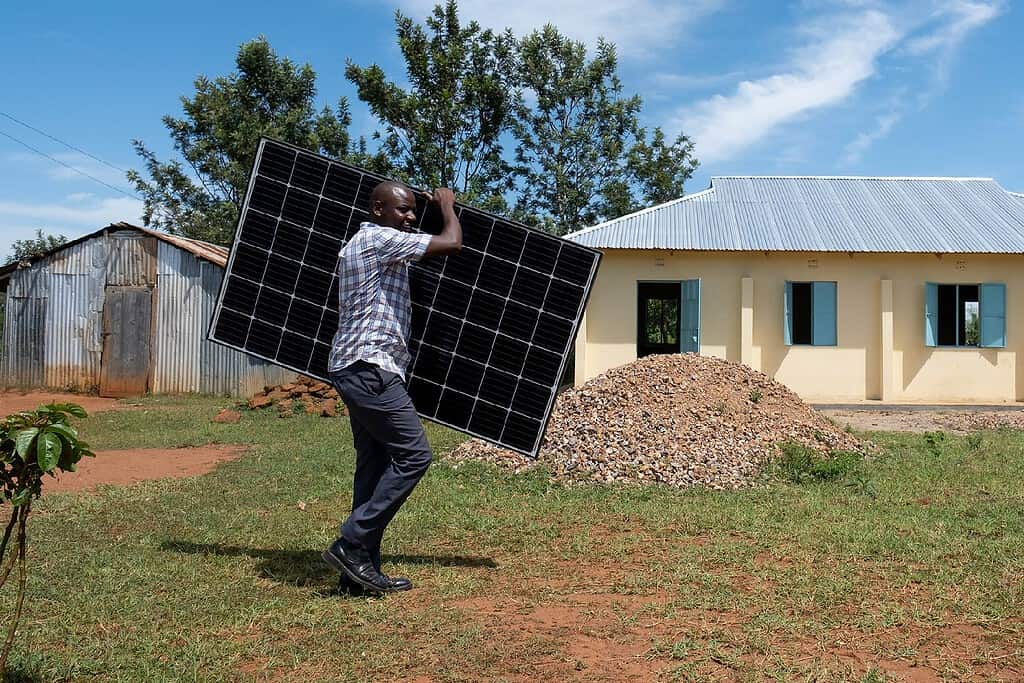A Conversation on the Challenges and Opportunities of Bringing Energy to the Poor

- Blog
- Energy
Despite massive gains in global access to electricity, nearly 1.2 million people, mostly across developing countries in Asia and Africa, live with limited or no access to electricity. Historically, the government has been responsible for providing power through the grid. This is not only a slow process plagued by corruption and bureaucratic delays but also prohibitively expensive in terms of economic and environmental costs. At Acumen, we believe that providing the poor with innovative energy solutions is critical and connected to the addressing the broader challenge of global poverty.
Access to electricity empowers people’s lives. Over the last decade, we have invested more than $19.3 million in 18 companies that provide affordable decentralized energy solutions to more than 50 million poor people. Our energy portfolio spans the energy value chain with companies in East Africa, India and Pakistan that provide solar lanterns, cookstoves, solar home systems, financing solutions, community-level off-grid generation and distribution channels. We are also looking to invest in the development of solar and hybrid mini-grids, solar home enterprise systems and other innovations that leverage renewable energy.
Earlier this month, we hosted a roundtable bringing together our investees, partners and investors interested in energy to provide insights on our evolution in the sector, our investment strategy, and lessons learned in bringing energy to the poor. Three Acumen companies—SolarNow, HUSK Power Systems and Nizam Energy—presented their business models, barriers to scale, and new partnerships to overcome these challenges.
Willem Nolens, CEO of SolarNow, a Uganda-based company selling and financing solar home systems, highlighted the importance of equity investors in providing strategic guidance to fast-growing social enterprises. Manoj Sinha, co-founder and CEO of HUSK, which provides rural electrification in India and Tanzania, talked about the need to diversify its services, from biogas manufacturing to mini grid installation, to attract investment and grow its business. Usman Ahmad, CEO of Nizam Energy, which distributes affordable home systems to off-grid customers in Pakistan, discussed the difficulty of raising capital there due to the lack of credibility.
Although the three entrepreneurs operate in different geographies, they share the same challenges and see opportunities for growth in similar partnership models. With the help of Acumen’s network, they are working to cultivate creative partnerships across the entire value-chain to develop consumer-financing opportunities to offer along with their products. They look to the partnership between Acumen investees M-KOPA and BURN Manufacturing as an example. M-KOPA—which created a pay-as-you-go model using mobile technology to make energy solutions affordable to East Africans—has joined forces with BURN Manufacturing, a company that makes low-cost, energy-efficient stoves for Kenya’s urban poor, to expand its reach.
Although these partnerships are proving effective, working capital and funds for research and development remain a key challenge for our companies. The CEOs shared how the lack of capital constantly hampers their path to scale and makes it harder to develop a proof of concept for investors. The companies also face a talent management problem due to the dearth of motivated and qualified people to fill critical middle-level positions.
The entrepreneurs know having the right team in place is key to making sure customers are happy. Through Acumen’s Lean Data initiative, investees are now learning more about their customers than ever before. With this new knowledge, entrepreneurs are creating customized strategies based on what they’ve learned and and refining their solar home systems and consumer financing products to cater to the demands of the poor.
“At times I think that Acumen knows my company better than I do,” Nolens said. “Analyzing the Lean Data findings had me in tears when results showed that customers were not satisfied with some of SolarNow’s services. Nonetheless, it not only gave me a better understanding of how to deliver our services to our customers but also helped to develop a competitive edge over other market players.”
It’s important that we understand the impact our companies are having in the lives of the poor. We can then help them raise capital, attract follow-on investment and provide them with the support they need to scale. These social enterprises are driving innovation to find faster, more efficient solutions to provide the poor with new opportunities and the promise of a brighter future, but we need to bridge the funding gap by investing catalytic capital in energy, which remains an underinvested sector. We need to bring key companies to scale by making more investments in promising enterprises addressing critical, specialized areas such as financing, distribution and sales. We need to engage governments and public institutions to increase their focus on off-grid expansion. Our vision is to create an off-grid solar ecosystem that fills in the missing gaps in the value chain and accelerates energy access across the developing world.